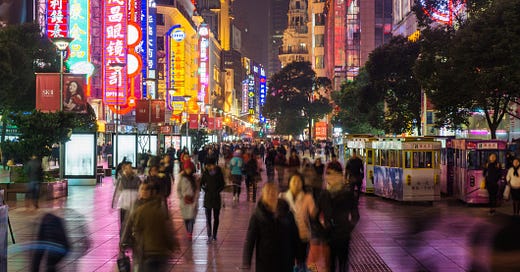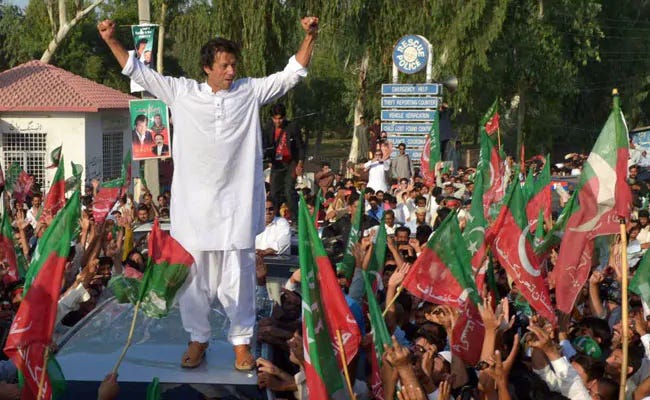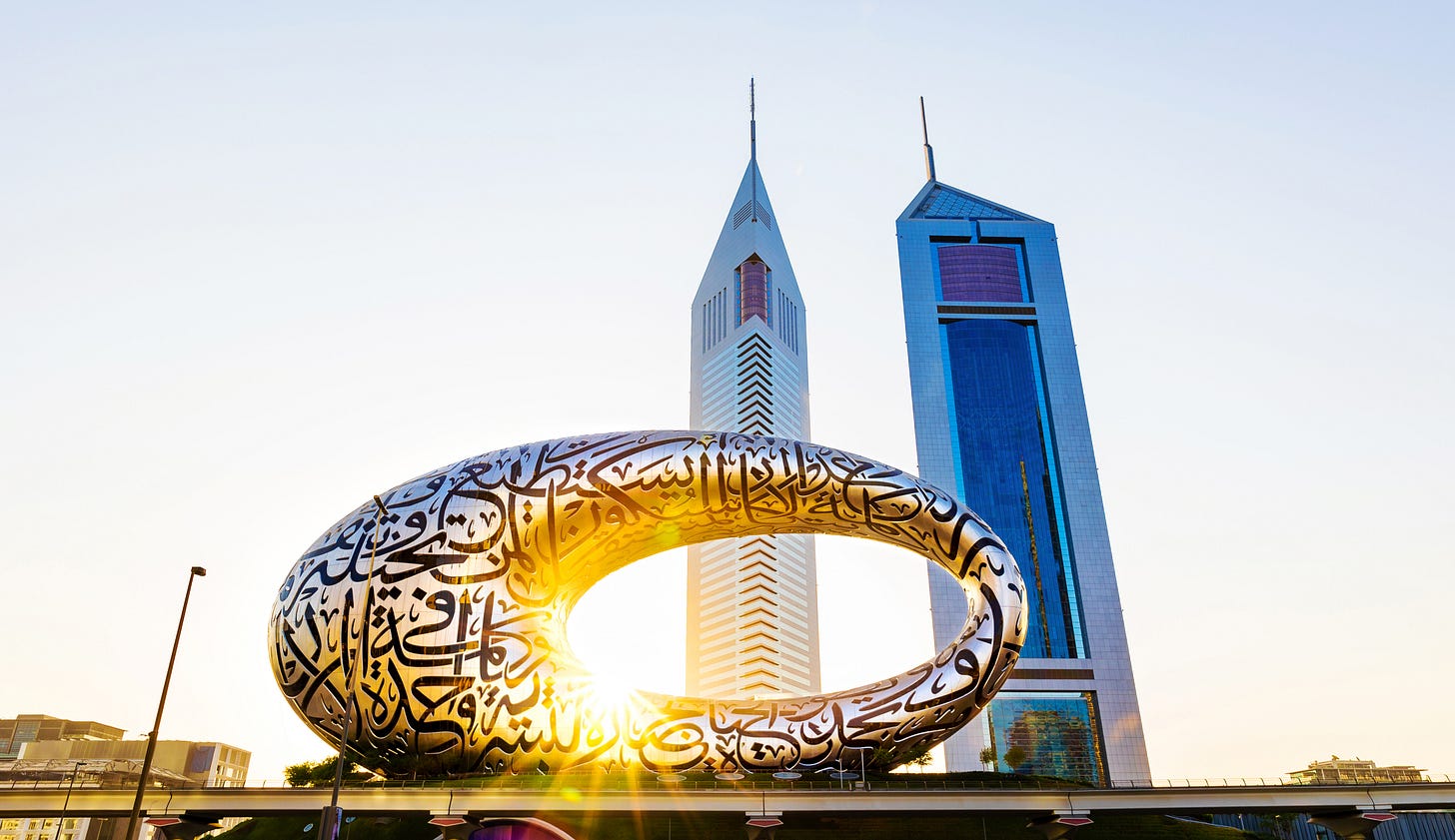Emerging Markets Daily - March 16
China Stocks Soar As Crackdown Subsides, Ukraine-Russia Talks Progress, China and Pakistan Turmoil, MENAP Digital Economy Growing, Namibia Eyes Green Hydrogen
The Top 5 Stories Shaping Emerging Markets from Global Media - March 16
China Stocks Soar as Fears of Crackdown Subside - Frantic Selling of Past Few Days Shifts to Frantic Buying
Bloomberg
“After a brutal 12 months for Chinese equities, Wednesday’s session was looking like a tepid bounce off multi-year lows until the headlines started rolling from Beijing. Then greed quickly replaced the panicked selling of the past few days.”
“In a brief statement carried by state media, China’s top financial policy body vowed to ensure stability in capital markets, support overseas stock listings, resolve risks around property developers and complete the crackdown on Big Tech ‘as soon as possible.’ Yi Gang, governor of the People’s Bank of China, followed with a statement saying the central bank would help implement the policies, as did the banking watchdog.”
“While the pledges from President Xi Jinping’s government offered little clarity over what authorities may do to achieve their goals, it was the first time China publicly addressed investors’ top concerns in one coordinated swoop. The move underscored Xi’s focus on ensuring economic and financial stability before a Communist Party congress at which he’s expected to secure at least another five years in power.”
“By the time trading ended just after 4 p.m. local time on Wednesday, the Hang Seng China Enterprises Index was up 12.5% in its best session since October 2008. Alibaba Group Holding Ltd. surged 27%, while JD.com Inc. jumped 36%. Property stocks rallied the most in more than a decade.”
“‘It’s the end of capitulation,’ said Peter Garnry, head of equity and quantitative strategy at Saxo Bank. ‘This confirms that the Chinese government sees healthy and strong equity markets as key for the country going forward. The equity market is totally sentiment driven right now and everyone is looking for an excuse to buy, though the headwinds for Chinese equities are still enormous.’” Sofia Horta E Costa reports.
Ukraine and Russia Signal Progress in Talks
Financial Times
“Ukraine and Russia claimed to be making significant progress in settlement talks on Wednesday, with Moscow saying there was ‘hope for reaching a compromise’ three weeks into President Vladimir Putin’s invasion.”
“Sergei Lavrov, Russia’s foreign minister, said that ‘absolutely specific wordings’ were ‘close to being agreed’ in negotiations with Ukraine, including security guarantees for Moscow and neutrality for Kyiv. The Kremlin said options for Ukraine modelled on Austria and Sweden were under discussion.”
“Lavrov’s assessment is the most upbeat yet delivered by a senior Russian figure, and came after Ukrainian president Volodymyr Zelensky said talks with Moscow aimed at ending the war were beginning to ‘sound more realistic.’”
“…Zelensky and his aides have increasingly played down Ukraine’s chances of joining Nato, a prospect that Russia sees as a provocation. Instead, Kyiv has signalled that alternative ‘security guarantees’ may be a more pragmatic option.”
“‘All wars end in agreements . . . As I am told, the positions in the negotiations sound more realistic,’ Zelensky said in a video address…’The negotiations are difficult for obvious reasons, but nonetheless there is a certain hope for reaching a compromise,’ Lavrov said in an interview with the RBC news channel.” The FT reports.
China Takes ‘Wait-and-See’ Approach on Pakistan Political Turmoil
Nikkei Asia
“With political uncertainty growing in Pakistan and a no-confidence motion set to be tabled against the government led by Prime Minister Imran Khan, Pakistani officials and experts have noted that China, its economic and geopolitical ally, has adopted a wait-and-see approach in its relations with the country as it tries to figure out whether its favorite opposition party, Pakistan Muslim League Nawaz (PML-N), can take power in Islamabad.”
“Since the beginning of March, opposition parties including PML-N had been preparing for the no-confidence motion to topple the Khan government. Now, Pakistan's national assembly -- the lower house of parliament -- is set to vote on the motion on March 27. If the motion secures at least 172 of 342 votes, Khan will have to step down from his post as prime minister.”
“…Officials and experts believe that after the likely ouster of Khan, China will prefer a government led by PML-N, a center-right Punjab-centric political party named after former Prime Minister Nawaz Sharif.”
“A senior official of the Pakistani government told Nikkei Asia on condition of anonymity that China has adopted a wait-and-see policy in the current political crisis. ‘China prefers a PML-N government but, in the case that Imran Khan survives the no-confidence motion, China will still work with him, albeit with less enthusiasm.’
“The China-Pakistan Economic Corridor -- the $50 billion Pakistan component of Beijing's Belt and Road Initiative -- has not progressed well under the incumbent government. Experts believe that a new government led by PML-N will be able to pump a new life into the CPEC.” Adnan Aamir reports.
Digital Economy of MidEast, North Africa and Pakistan Could Hit $700B by 2030
The National
“The digital economy of the Middle East, North Africa and Pakistan (Menap) is set to exceed $100 billion this year and has the potential to reach $700bn by 2030 if backed by adequate investment, according to management consultancy RedSeer.”
“The digital economy registered robust growth in 2021 and could expand by 42 per cent annually to $104bn this year as the Covid-19 pandemic hastens the pace of digital adoption, Redseer said in a report on Tuesday.”
“However, the growth is largely dependent on the digital economy securing about $20bn in funding in the next two to three years, the India-based company said.
“The Menap region's digital economy presents a significant opportunity to drive economic and societal growth as more users increasingly rely on smartphones and digital services for their transactions and activities.” Alvin R. Cabral reports.
Namibia Eyes Green Hydrogen Future
African Business
“The Namibian government has announced that it will choose the German consortium Hyphen Hydrogen Energy as the preferred bidder for its green hydrogen project in the Tsau Khaeb National Park.”
“The large-scale green hydrogen project is the most notable project in the government’s Southern Corridor Development Initiative (SCDI) in Kharas, the country’s southernmost region.”
“James Mnyupe, economic advisor to the president and hydrogen commissioner, noted that the region is particularly suitable due to its large solar and wind resources and proximity to the coast. Hyphen has described the park as one of the top five locations in the world for the production of low-cost hydrogen.”
“The agreement grants the company the right to operate the project for 40 years with operations set to begin in 2026 and plans to produce up to 300,000 tonnes of green hydrogen per year. With an eventual project size of $9.4bn, the country wants to establish itself as a major power in the production of green hydrogen.”
“Although the green hydrogen sector currently represents less than 1% of global hydrogen production, African countries including Egypt, Morocco and South Africa are all attracted to its potential in a world shifting towards renewable energies.”
“The World Platinum Investment Council estimates that the sector will be worth $2.5 trillion by 2050, supporting 30m jobs. Japan alone is planning to import up to 800,000 tonnes of the product annually from 2030.”
“At present, global hydrogen production is based on stripping hydrogen from fossil fuels such as methane, natural gas or coal. In contrast, green hydrogen energy is produced using electrolysis, a process that separates hydrogen molecules from desalinated water using wind turbines or solar energy.” Amine Dinar reports.
“I was fully aware of what would be destroyed. I did not know what would be built out of the ruins. No one can know that with any degree of certainty, I thought. The old world is tangible, solid, we live in it and are struggling with it every moment - it exists. The world of the future is not yet born, it is elusive, fluid, made of the light from which dreams are woven; it is a cloud buffeted by violent winds - love, hate, imagination, luck, God…The greatest prophet on earth can give men no more than a watchword, and the vaguer the watchword the greater the prophet.” - From Zorba the Greek, by Nikos Kazantzakis







